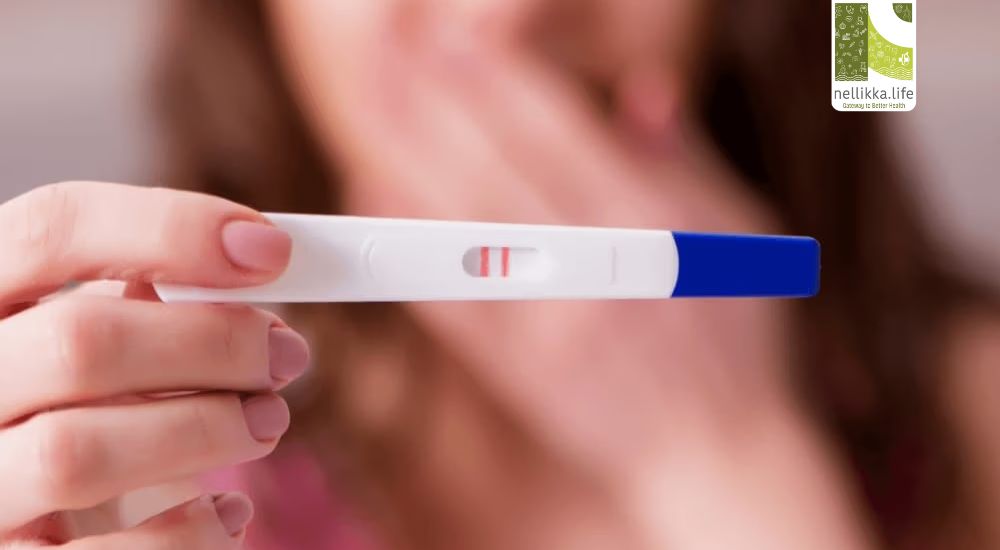Being Pregnant for the First Time: A Journey of Change, Wonder, and Courage

Becoming pregnant for the first time is a life-altering experience—a blend of excitement, nervousness, curiosity, and transformation. It’s the start of an emotional and physical journey that brings you closer not just to your baby, but to a new version of yourself.
Whether your pregnancy was planned or a surprise, stepping into motherhood for the first time can feel overwhelming. At nellikka.life, we’re here to guide you through every phase—backed by science, compassion, and a touch of real-world wisdom.
1. The Emotional Rollercoaster: From Discovery to Acceptance
For most women, the first sign of pregnancy is missed periods or unusual tiredness. A home test or doctor’s confirmation makes it real—and this moment can stir a flood of emotions:
- Joy and excitement
- Anxiety about health and future responsibilities
- Fear of change, loss of independence, or complications
- Guilt or confusion in unplanned pregnancies
Hormonal shifts in early pregnancy can heighten mood swings. It’s normal to feel a mix of elation and uncertainty.
Psychologists affirm that acknowledging your emotions and having honest conversations with your partner, a trusted friend, or a counselor can reduce stress and help you transition better.
2. First Trimester: Building the Foundations
The first 12 weeks are crucial. The baby’s major organs begin to develop, and you’ll likely experience:
- Morning sickness (nausea with or without vomiting)
- Tender breasts and fatigue
- Food aversions or cravings
- Frequent urination
- Mild cramping or spotting
Health Checklist:
- Begin prenatal vitamins (especially folic acid)
- Visit a gynecologist for your first scan (usually around 6–8 weeks)
- Screen for thyroid, sugar levels, hemoglobin, and infections
- Focus on hydration and small, frequent meals
Prenatal care during the first trimester lowers risks of birth defects and pregnancy loss.
3. Nutrition: Eating for Two—Wisely
Contrary to popular belief, you don’t need double the calories. You need smarter, more nutrient-rich food choices.
Focus on:
- Iron-rich foods: leafy greens, dates, lean meats
- Calcium: dairy, ragi, sesame seeds
- Folic acid & Vitamin B12: eggs, citrus fruits, legumes
- Protein: lentils, nuts, eggs, fish
- Hydration: 8–10 glasses of water a day
Avoid raw papaya, uncooked meat, excessive caffeine, and street food.
4. Body & Mind: Respecting the Transformation
As your body changes, so will your perception of self. From bloating and backaches to stretch marks and swelling, the physical transition is real.
But this is also a time for deep body wisdom and emotional rewiring.
Try:
- Prenatal yoga or gentle walking (after your doctor’s approval)
- Meditation or breathing techniques
- Journaling your experiences
- Joining a pregnancy support group
Studies show mindfulness during pregnancy lowers the risk of postpartum depression and supports fetal development.
5. The Anatomy Scans and Milestones
Throughout pregnancy, you’ll undergo a few important scans:
- Dating Scan (6–8 weeks)
- NT Scan (11–13 weeks): Measures nuchal translucency for chromosomal conditions
- Anomaly Scan (18–22 weeks): Checks baby’s organs
- Growth Scans (28–36 weeks): Track weight, position, fluid levels
These scans are important, but don’t be afraid of them. If results are unclear, trust your doctor to guide you calmly.
6. Sleep, Sex, and Self-Care
- Sleep may be disrupted in the first and third trimesters—use pillows for support and sleep on your side.
- Sex is generally safe unless your doctor advises against it due to placenta issues or complications.
- Self-care isn’t selfish. Pamper yourself with warm baths, reading, music, or time in nature.
7. Getting Ready: Emotionally and Practically
Start thinking about:
- Birth plan: Natural, epidural, C-section?
- Hospital bag: Pack around 36 weeks.
- Pediatrician selection and breastfeeding education
- Maternity leave planning
This phase can bring nesting instincts—organizing, setting up the nursery, and mentally preparing for labor.
Remember: No mother is “ready.” You become ready by embracing each day with love and learning.
8. When to Call the Doctor
Call or visit your doctor if you experience:
- Bleeding or severe abdominal pain
- Fever or chills
- Decreased baby movements (after 26 weeks)
- Blurred vision, swelling, or headaches (possible preeclampsia signs)
Never ignore your instincts. It’s better to ask than regret.
Final Words: You Are Enough
Pregnancy is not just about growing a baby—it’s about growing a mother too.
You may not glow every day.
You may cry over small things.
You may worry, doubt, and ache.
But you are stronger than you think, and your body knows what to do.
At nellikka.life, we celebrate every mother—first-time or experienced—and are here to walk this path with you.
Take a deep breath.
Place your hand over your heart.
That’s where motherhood begins.
References :
1. Feutal Development: First Trimester
2. Pregnancy
3.March of Dimes – Coping with Stress During Pregnancy




